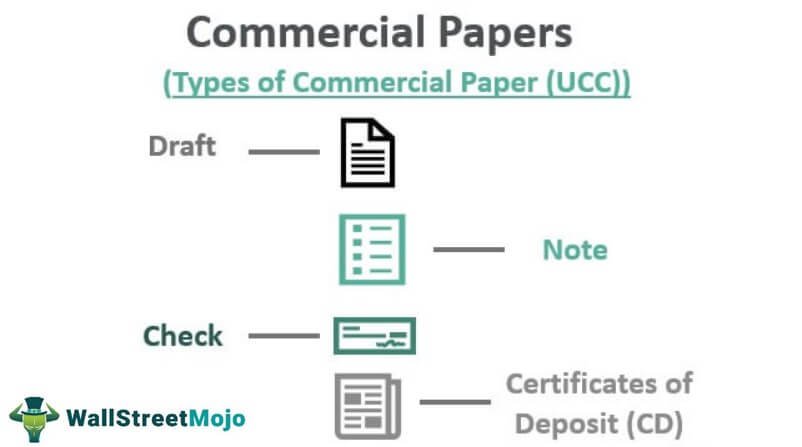Are you searching for ways to reduce your taxable estate for your heirs? Look no further! In this article, we will explore practical strategies that can help you minimize the tax burden on your estate, ensuring that your loved ones receive more of the assets you’ve worked hard to accumulate. By implementing these techniques, you can take control of your financial future and leave a lasting legacy for your heirs. Let’s dive in and discover how to reduce your taxable estate for heirs while maintaining financial stability.
How to Reduce Your Taxable Estate for Heirs
Planning for the future is an essential aspect of managing your finances. One crucial consideration is how to minimize the taxable estate you leave behind for your heirs. By taking the right steps, you can ensure that your loved ones receive the maximum benefit from your estate while minimizing the impact of estate taxes. In this article, we will explore various strategies and techniques to help you reduce your taxable estate for your heirs.
Understanding Estate Taxes
Before delving into the strategies, let’s first understand what estate taxes are. Estate tax, also known as inheritance tax or death tax, is a tax levied on the transfer of property after an individual’s death. The tax is calculated based on the total value of the assets owned by the deceased, including real estate, investments, cash, and other possessions.
Estate taxes can significantly reduce the amount of wealth passed down to heirs, potentially causing financial burdens for them. Therefore, it is essential to take proactive steps to minimize the impact of estate taxes on your estate.
Start with Estate Planning
Estate planning is a crucial step in reducing your taxable estate. A well-thought-out estate plan allows you to have greater control over the distribution of your assets and minimize potential tax liabilities. Consider the following aspects when devising your estate plan:
- Create a will: A will is a legal document that outlines how you want your assets distributed after your death. By having a will in place, you can ensure that your assets go to the intended beneficiaries. It also allows you to name an executor who will handle your estate.
- Establish a trust: A trust can be an effective tool to minimize estate taxes. By transferring your assets to a trust, you can remove them from your taxable estate. Trusts come in various forms, such as revocable living trusts and irrevocable trusts, each with its own benefits and considerations.
- Gift assets during your lifetime: Gifting assets to your loved ones while you are alive can help reduce the value of your taxable estate. The IRS allows a certain annual exclusion amount for gifts, which is currently $15,000 per person. By taking advantage of this exclusion, you can transfer assets to your heirs without incurring gift tax.
- Consider charitable donations: Donating to charitable organizations can not only benefit worthy causes but also reduce your taxable estate. Charitable contributions are generally deductible from your estate, helping to lower the overall taxable value.
Utilize Lifetime Exemption and Federal Tax Laws
Understanding the lifetime exemption and federal tax laws is vital in reducing your taxable estate. The lifetime exemption refers to the total value of assets an individual can transfer without incurring estate tax. Currently, the federal estate tax exemption is set at $11.7 million per individual or $23.4 million per married couple.
By utilizing the lifetime exemption, you can pass down assets up to the exemption limit without facing estate tax. However, it is important to keep in mind that these exemption limits may change over time due to legislative or regulatory changes. Staying informed about the current tax laws and working closely with a qualified tax professional or estate planner is crucial for effective estate tax planning.
Consider Irrevocable Life Insurance Trust (ILIT)
An Irrevocable Life Insurance Trust (ILIT) is a specialized type of trust that can provide significant benefits in reducing estate taxes. Here’s how it works:
1. Establish the ILIT: Set up the ILIT as the owner and beneficiary of a life insurance policy.
2. Funding the trust: Irrevocably transfer funds to the trust to pay the life insurance policy premiums.
3. Minimize estate tax: Since the trust is the owner of the policy, the life insurance proceeds are not included in your taxable estate, effectively reducing potential estate taxes.
4. Provide liquidity: The life insurance proceeds can provide immediate cash to cover estate taxes or any other expenses that may arise after your passing.
An ILIT can be a complex strategy, and it is recommended to seek professional guidance to ensure it aligns with your specific circumstances and goals.
Maximize Qualified Retirement Accounts
Retirement accounts, such as Individual Retirement Accounts (IRAs) and 401(k) plans, can hold substantial assets. However, they can also be subject to estate taxes if not properly managed. Consider the following strategies to maximize your retirement accounts while minimizing estate tax impact:
- Designate beneficiaries: Ensure your retirement accounts have designated beneficiaries to facilitate the transfer of assets directly to them without going through probate. This avoids estate taxes and allows beneficiaries to continue enjoying the tax-deferred growth potential.
- Stretch IRA: If your beneficiaries are younger, they can take advantage of the “stretch IRA” strategy, which allows them to extend the required minimum distributions (RMDs) over their lifetimes, potentially reducing the tax burden.
- Convert to Roth IRA: Converting a traditional IRA to a Roth IRA can help you minimize future estate taxes. Although you will need to pay taxes on the converted amount, the subsequent growth in the Roth IRA and the tax-free distributions to your beneficiaries can be advantageous.
Plan for Business Succession
If you own a business, proper planning for business succession is essential to minimize estate taxes and ensure the smooth transition of your business to the next generation. Consider these strategies:
- Create a succession plan: Establish a detailed plan outlining how your business will be passed on to your chosen successor(s). This plan can include a buy-sell agreement, outlining the terms and conditions of transferring ownership.
- Utilize valuation discounts: Depending on the structure of your business and its value, you may be able to take advantage of valuation discounts, such as minority interest or lack of marketability, which can help reduce the taxable value of your business.
- Consider family limited partnerships: Family limited partnerships (FLPs) can be utilized to transfer ownership of the business to family members while minimizing estate taxes. By gifting limited partnership interests, you can retain control of the business while reducing the value of your taxable estate.
Regularly Review and Update Your Plan
Estate planning is not a one-time task. As your circumstances change, it is crucial to review and update your plan periodically. Major life events, such as marriage, divorce, birth of children or grandchildren, or significant changes in assets or goals, may require adjustments to your estate plan. By keeping your plan up to date, you can ensure that it remains effective in reducing your taxable estate for your heirs.
Reducing your taxable estate for your heirs is a prudent step that can help ensure financial security for your loved ones. By implementing the strategies discussed in this article, such as effective estate planning, utilizing lifetime exemptions, establishing trusts, and considering tax-efficient retirement account strategies, you can minimize the impact of estate taxes and maximize the amount transferred to your heirs.
Remember, estate planning is a complex area, and seeking professional advice from an experienced estate planner or tax professional is highly recommended. They can help tailor a plan to your specific circumstances and ensure your assets are distributed according to your wishes while minimizing tax liabilities. Take the time today to start planning for the future and secure the financial well-being of your heirs.
Will my heirs have to pay estate taxes?
Frequently Asked Questions
Frequently Asked Questions (FAQs)
How can I reduce my taxable estate for heirs?
Reducing your taxable estate for heirs requires careful estate planning and utilizing various strategies. Here are some ways to achieve this:
1. What is the importance of creating a will?
Creating a will is crucial as it allows you to distribute your assets according to your wishes. Through a will, you can specify how you want to minimize the tax burden on your estate and provide for your heirs.
2. Can gifting assets help reduce the taxable estate?
Yes, gifting assets during your lifetime can be an effective strategy. By transferring assets to your heirs before you pass away, you can reduce the overall value of your estate, potentially lowering the estate tax liability.
3. Are there any tax exemptions or deductions available to reduce the taxable estate?
Yes, certain exemptions and deductions can help reduce your taxable estate. For example, the current estate tax exemption allows you to pass on a certain amount of assets tax-free. Additionally, charitable donations made through your estate can lower the estate tax liability.
4. How can a trust help in reducing estate taxes?
By creating a trust, you can transfer assets outside of your taxable estate. Irrevocable trusts, such as a charitable remainder trust or an irrevocable life insurance trust, can provide tax advantages and help reduce the taxable estate for your heirs.
5. What is the impact of life insurance on estate taxes?
Life insurance proceeds are generally not subject to income tax. However, they can be included in your taxable estate if you are the owner. To avoid this, you can transfer ownership of the policy to an irrevocable life insurance trust (ILIT).
6. Can establishing a family limited partnership (FLP) be beneficial in reducing estate taxes?
Yes, creating a family limited partnership (FLP) can be advantageous. It allows you to transfer assets to the partnership, potentially reducing the taxable value of your estate. Additionally, FLPs offer flexibility, control, and potential tax savings for future generations.
7. What are qualified personal residence trusts (QPRTs) and how can they help reduce estate taxes?
Qualified Personal Residence Trusts (QPRTs) are a type of trust that allows you to transfer your primary residence or vacation home to your heirs while retaining the right to live in the property for a specific period. This arrangement can help reduce the taxable value of your estate while providing you with continued use and enjoyment of the property.
8. Is it necessary to consult an estate planning attorney for reducing estate taxes?
While it is not mandatory, consulting an experienced estate planning attorney can greatly assist in developing a personalized strategy to maximize the reduction of estate taxes. They can help navigate complex tax laws and ensure your wishes are properly documented and implemented.
Final Thoughts
To reduce your taxable estate for heirs, there are several strategies you can employ. One way is to gift assets during your lifetime, taking advantage of the annual gift tax exclusion. Additionally, you can establish trusts to transfer assets and minimize tax implications. Another option is to use a charitable trust, which allows you to donate to a cause while reducing the taxable value of your estate. Taking advantage of the marital deduction and utilizing life insurance policies can also help reduce your taxable estate for heirs. By implementing these strategies, you can ensure that your loved ones receive more of your estate while minimizing the burden of taxes.



